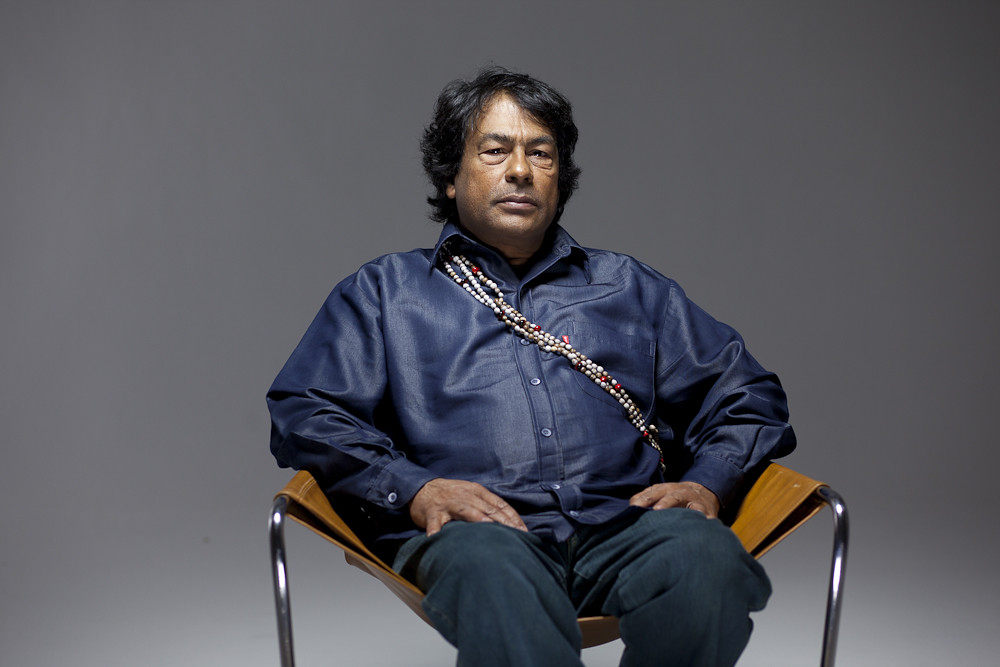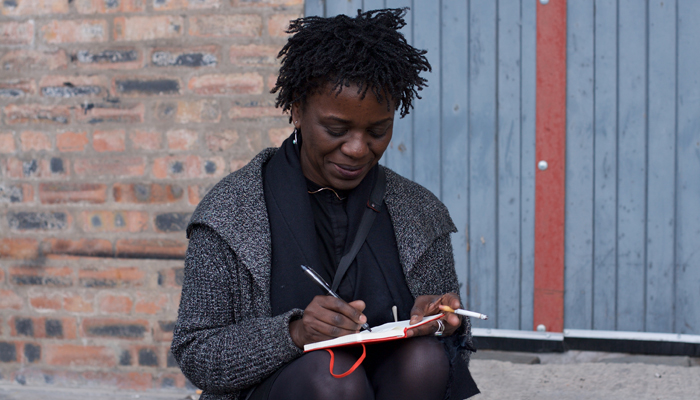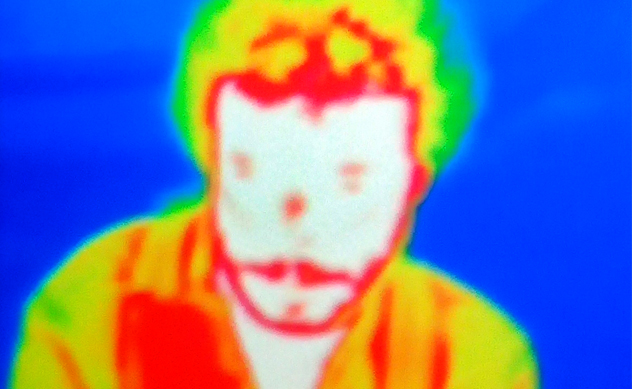To Give Up This World, To Have Many Others – In Conversation with Ailton Krenak
To Give Up This World, To Have Many Others – In Conversation with Ailton Krenak
Ailton Krenak has been incredibly influential in the thinking and developing of this Episode, especially in our conversations and collaborations with Denise Ferreira da Silva and Amilcar Packer over the last few years. Ailton was originally going to attend Episode 11 in person, to take part in both the More Than Perfect (with Denise, and others), and If There Is A Future, It Is Ancestral (with Amilcar). Unfortunately, he isn’t able to travel to Glasgow during the Episode. We hope he can join us at the next one instead.
In place of attending in person, Ailton, Denise and Amilcar have recorded a conversation they had together a couple of weeks before the Episode. We share a video of that conversation below, and both Denise and Amilcar plan to use excerpts from it in events at the Episode.
In it, they discuss the notion of pluriverses, and plural worldviews and life ways. They unpick the colonial imposition of linear time or teleology and the fixation on historical continuity; and instead think about existence under other basis such as offered by the late quilombola leader and philosopher Nego Bispo’s (Antonio Bispo dos Santos) idea of time in terms of “beginning, middle, beginning.” They talk through Davi Kopenawa’s thinking about Western society as being obsessed with merchandise, and they extent to which this has collapsed into the subject and the body, and what it means to invent a poetics capable of freeing us from the desire for merchandise. They get into Ailton’s notion of affective alliances and Nego Bispo’s idea of confluences, in both of which organisms, human and non-human, recognize their distinct poetics of life; and they talk about how these work against capitalism and fascism, as a denunciation of political alliances, and maybe even of ‘politics’.
Bios
Ailton Krenak is considered one of the great leaders of the Brazilian indigenous movement. Since the 1980’s he’s been instrumental in bringing together the 180 different indigenous tribes of Brazil in multiple collective formations, as well as overcoming historical tensions between the indigenous peoples and the rubber tappers, to collectively organise against the capitalist bondage of the future.
He famously functioned as a representative of indigenous peoples at the debates on the 1988 Brazilian Constitution, where he ritually painted his face during a speech. You can see a video of this moment here. This speech/ performance helped defeat the political slight of hand that would have ‘granted’ indigenous peoples’ Brazilian citizenship and rights, as a way to remove their immanent sociality and any claims they had to their traditional lands, thus opening those lands up to extraction and exploitation.
He either co-founded or participated in multiple indigenous rights organisations, such as the União dos Povos Indígenas (Union of Indigenous Peoples), the Aliança dos Povos da Floresta (Alliance of Forest-dwelling Peoples), the Núcleo de Cultura Indígena (Nucleus of Indigenous Culture), among others. From 2003 to 2010, Krenak was special aide for indigenous affairs to the governor of Minas Gerais. In 2016, he was awarded an honorary doctorate by the Federal University of Juiz de Fora, where he teaches about culture, history and traditional knowledge of indigenous peoples. In October 2023, he was elected to the Brazilian Academy of Letters, being the first indigenous Brazilian to join the institution.
He has published over 15 books. Some of them have been translated into more than 13 languages. In recognition of his intellectual contributions, he was honoured with the prestigious Juca Pato award for ‘intellectual of the year’ by the Brazilian Writers Union in 2020. Presently, he resides in the Krenak Indigenous Reserve, situated in the municipality of Resplendor, Minas Gerais. Ailton can no longer attend in person, but will participate by video.
Denise Ferreira da Silva is a philosopher, writer, and filmmaker. Her academic and artistic works address the ethico-political challenges of the global present. She is the author of Toward a Global Idea of Race (2007), A Divida Impagavel (2019), Unpayable Debt (2021) and co-editor (with Paula Chakravartty) of Race, Empire, and the Crisis of the Subprime (2013) Her artistic work includes the films Serpent Rain (2016) and 4Waters-Deep Implicancy (2018), in collaboration with Arjuna Neuman; and the relational art practices Poethical Readings and Sensing Salon, in collaboration with Valentina Desideri. She has written texts for publications for the Liverpool, São Paulo and Venice Biennales, and for Documenta 14.
Amilcar Packer was born in Santiago de Chile, 1974, and lives and works in São Paulo, Brazil, since 1982. Packer unfolds an experimental and non-disciplinary art and collaborative research-based practice, informed by curatorial and editorial operations, in view of transformative social justice. His work seeks to intervene in artistic, political and social imaginaries by the means of mid and long-term public programs, presentations and debates, workshops, study groups, online platforms and archives, research trips, and editing, translation and free distribution of texts and publications (printed and online). He graduated in Philosophy at USP (1999), has a MA in Clinical Psychology at PUC-SP (2015), and is currently enrolled in a PhD at the Gender, Race, Sexuality and Social Justice, at the University of British Columbia.
As a curator, he organized exhibitions in institutions such as the Centre Rhénan d’Art Contemporain (Altkirch, France, 2022/2023), Museu de Arte Moderna da Bahia (Salvador 2018), Centro de Arte Hélio Oiticica (Rio de Janeiro, Brazil, 2017/ 18), Ludlow 38, New York, USA; He co-organized artistic-curatorial initiatives and platforms such as Ventres da Mata Atlántica (2018) and EhChO (2020/2022), and was co-director of the artistic residency program CAPACETE, Rio de Janeiro, Brazil between 2012/2013.
As an artist, he has participated in group shosw such as: “Abduction” (Oslo, Norway, 2020), “Incerteza Viva – 32nd São Paulo Biennial (2016); “Modifiy as Needed”, MOCA, Miami, USA. (2011); “Práxis: Art in Times of Uncertainty – 2nd Thessaloniki Biennale of Art” (Thessaloniki, Grécia, 2009); “Farewell Postcolonialism – 3rdGuangzhou Triennial, China (2008); “On Reason and Emotion”, 14th Sydney Biennale, Australia (2004).
Part of his practice takes place in educational and art mediation programs at institutions such as The Royal Danish Academy of Fine Arts, Copenhagen, Denmark (2024; 2023; 2022; 20217); ENSBA, Paris, France (2013); “History Matter” (2012), CCA-Lagos, Nigeria; Hobart and Launceston Schools of Arts, Tasmania, Australia; “1st Pernambucan Week of the Arts” (2001), Recife, Brazil.
Documentation
Access
Translation
See general Access information for Episode 11: To End the World As We Know It event



